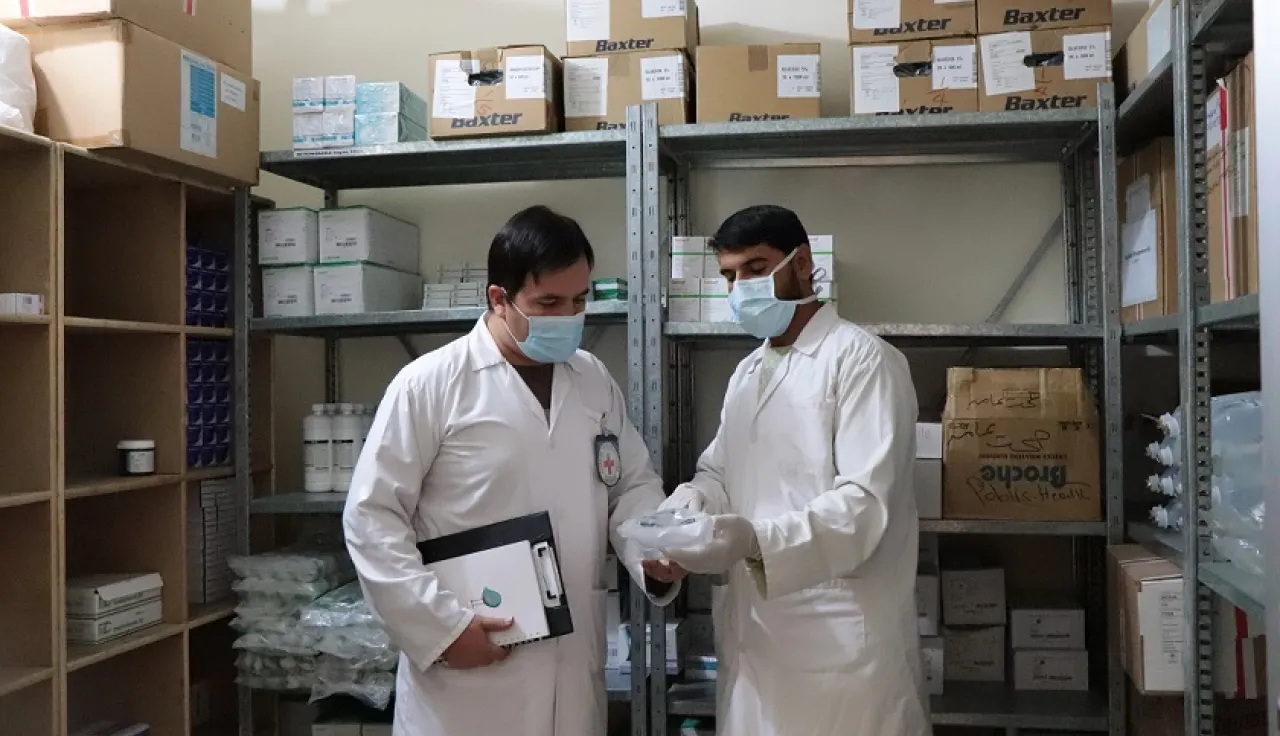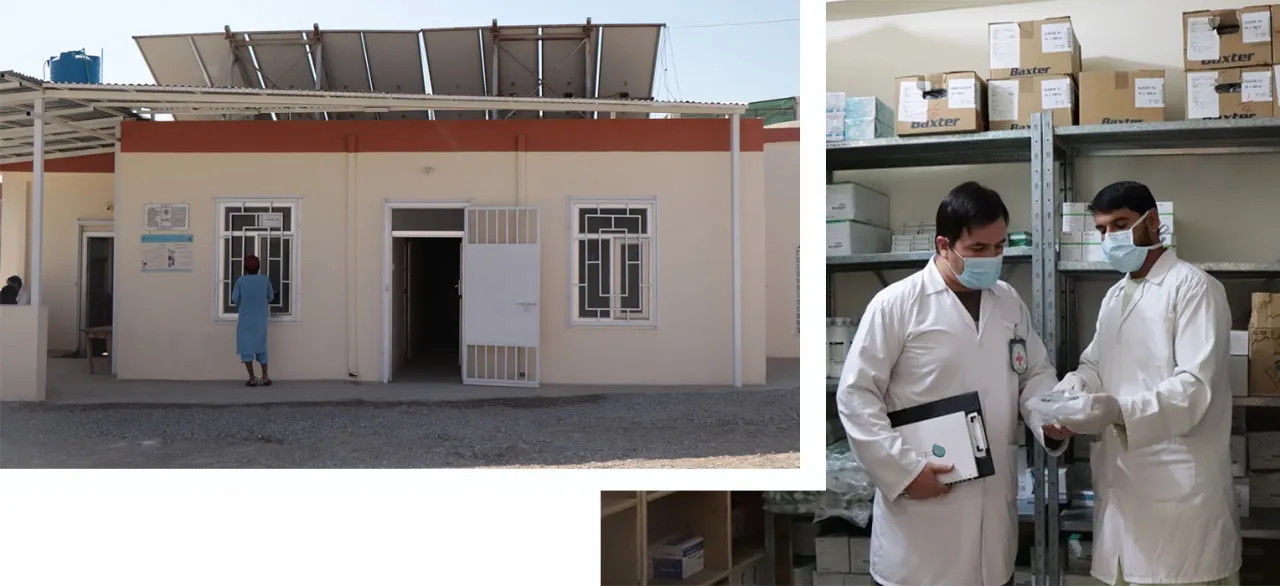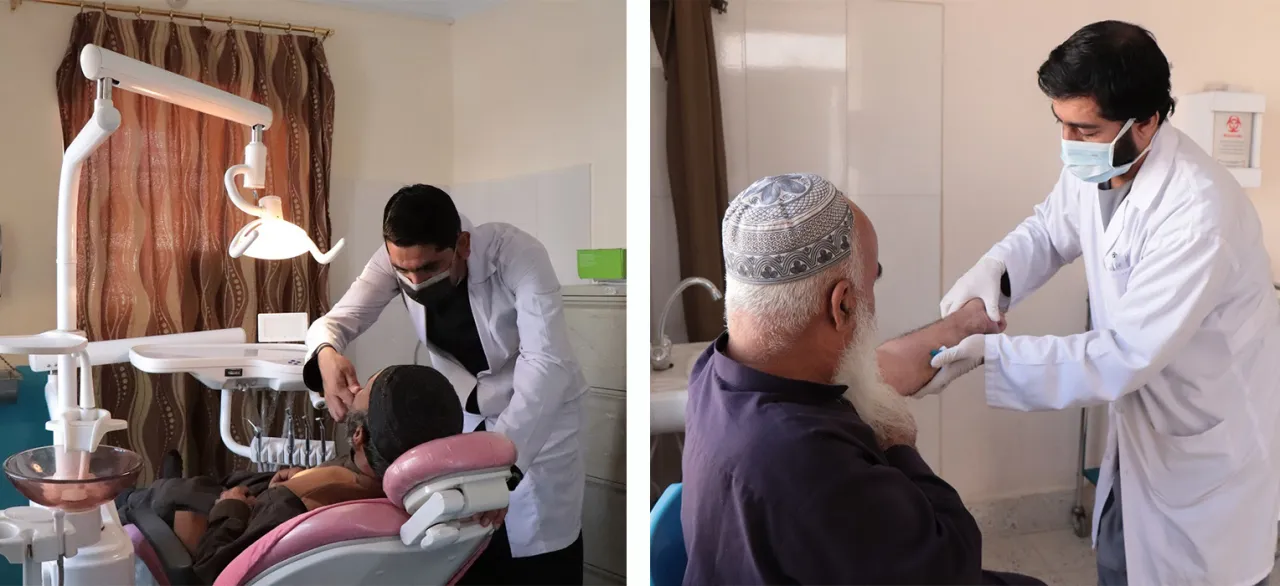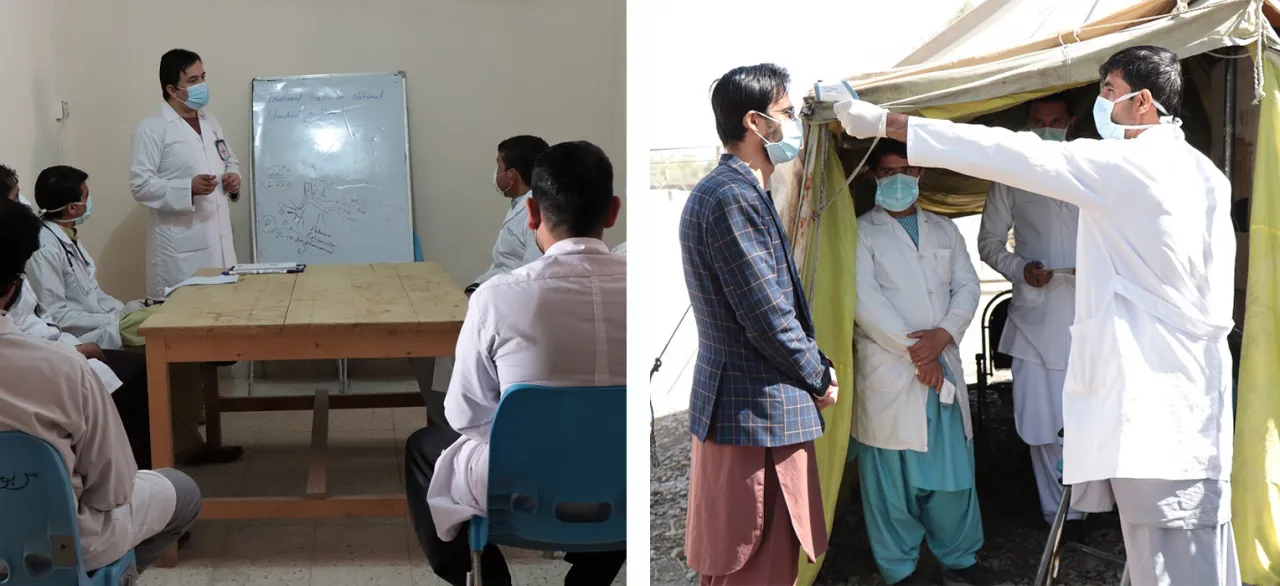Afghanistan: Refurbished prison clinic smoothens patient flow

Giving a boost to healthcare facilities for detainees, the International Committee of the Red Cross (ICRC) has upgraded the clinic of Sarpoza Provincial Prison in Kandahar.
As part of the project, which was taken up in 2019, the ICRC changed the water supply system at the clinic, added five medical consultation rooms, a separate waiting area for female patients and streamlined the management and distribution of medicines.
The ICRC also built and equipped a 12-bedded medical isolation ward, also fitting it with a hybrid solar power system in 2017. In view of COVID-19 pandemic sweeping the globe, a medical screening station was set up at the main entrance of the prison to screen all visitors as a preventive measure against the spreading of infection within the prison.
The station is manned by a team comprising a doctor, three nurses and a health educator who were recently appointed by the Director of Public Health with the financial and technical support of the ICRC.

Left: A detainee taking medicine from the rehabilitated clinic in Sarpoza Provincial Prison. Right: An ICRC health expert checks the medicines in stock in the clinic.
Dr Bakht Mohammad, in charge of the clinic, said, "We have two doctors, four nurses, a pharmacy assistant and a cleaner working full-time at the clinic to provide primary healthcare services to patients.
With the ICRC's support, we also have a gynaecologist, dentist, psychiatrist and a dermatologist visiting weekly for consultations." Working at the clinic for the last seven years, Dr Mohammad said now they have separate rooms for different needs such as an emergency room and rooms to consult specialists.
Dr Ghulam Mohammad Zwak, who heads the outpatient department, shared that the ICRC's health team has also been helping in capacity-building, training in technical knowledge, sharing guidelines for various conditions and management of medicines. "The prison houses more than 1,000 detainees so sometimes we see many patients," he added.

Left: Detainees can now consult with specialists such as a dentist and dermatologist twice a week. Right: A doctor inserts a cannula while treating a detainee in the emergency ward.
Appreciating the quality of treatment at the clinic, 22-year-old Omar Shah, who is the representative of detainees in his block and takes his fellow inmates for consultation, said, "I am very happy about how the doctors treat us and for the timely medication." Shah has been in prison for four years.
"Besides having proper space for providing health services, it's also important to ensure the smooth inflow of patients. Before the clinic was extended, there were challenges related to overcrowded spaces as there was no visitors' area or a separate space for female patients," said Dr Mohammad. This, he added, disrupted the discipline at the clinic. "Besides these designated areas, now we also have a proper room for carrying out dressings," he said.

Left: An ICRC expert training doctors who treat detainees at the clinic. Right: A team of health workers screen visitors at the main entrance of Sarpoza prison.
Dr Zwak added, "Adding the provision of screening new detainees and the visitors coming to the prison has really helped us. As you know, COVID-19 and other infectious diseases can spread rapidly among other detainees. So, it was crucial to have an isolation ward for those with infectious diseases."



